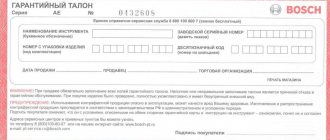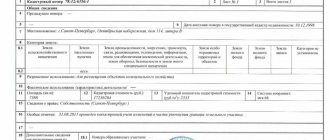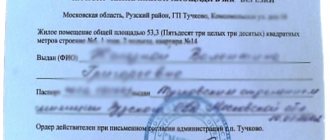Updated July 21, 2021 Author: Dmitry Ivanetscu
Hello, dear readers of the KtoNaNovenkogo.ru blog. Probably, each of you at least once came across the concept of “dependent”.
Some even in a negative way.
So who is called a dependent in everyday life, and who is considered a dependent from the point of view of the law, is there an official formulation - we will analyze all this in this article.
Dependent: concept, origin of the term
The word “dependent” originates in the Old Church Slavonic language from the word “expend” - to live, to spend. Over time, the concept of “dependency” arose, implying material support for a person in need, and the person in need began to be called a dependent. This word appears quite often in modern legislation. However, the laws do not establish an unambiguous definition of it.
State dependents
Based on references to dependency in the legislative acts of the Russian Federation, it can be determined that a dependent is a citizen who does not have the ability to provide for himself financially, and therefore receives material support from another person or the state. Able-bodied unemployed citizens cannot be dependent.
It is believed that people with disabilities need material support. However, a wide range of citizens are included in the category of those in need of support. The following are considered dependents:
- disabled people and those recognized as incapacitated due to mental illness;
- children under the age of majority;
- adult students;
- citizens of retirement age;
- persons who have entered into a lifelong maintenance agreement.
There are 2 main categories of people in need of financial support. Dependents of the state and individual individuals are distinguished. Dependents of the first category:
- orphans;
- pensioners;
- students receiving financial support from the state;
- disabled citizens who are in specialized government institutions on full state support.
Dependents of citizens
Most able-bodied citizens have dependent relatives. The number of dependents per citizen is not limited by law. Dependents of an individual:
- natural and legally adopted children under 18 years of age;
- disabled relatives, regardless of age;
- sister or brother who have not reached working age;
- retired parents;
- young grandchildren;
- spouse of retirement age;
- children, brothers, sisters, grandchildren under 23 years of age until graduation from an educational institution;
- citizens who have signed a lifelong maintenance agreement with dependents.
Many people wonder whether a woman who does not work because she is raising a child is a dependent. Until how old can she be a dependent? Dependents are defined as spouses or other relatives who are not working to care for a child under 14 years of age. However, a spouse on paid maternity leave is not a dependent.
Why do you need dependent status?
Often, people do not apply to government agencies to obtain dependent status unless they have a legal right to any benefits or demonstrate financial obligations to other citizens. The only category of citizens who will not have to confirm their status are minor children, since they are such initially based on generally accepted norms of law.
Speaking of other citizens, they should use the procedure for establishing dependent status and contact government authorities.
Legislation mentioning dependents
No laws actually regulate the rights of dependents or give them a full, detailed definition. However, the term appears frequently in many major legal documents:
- Civil Code of the Russian Federation - one of the articles discusses the possibility of them inheriting the property of the deceased breadwinner. The right to a share in the inheritance arises for the dependent after one year of guardianship. Even if the citizen providing it did not include it in his will, the state legalized a mandatory share for the dependent. The adopted child becomes a potential heir, as do blood relatives. There is also an article in the Civil Code that fully describes the procedure for judicial determination of dependency.
- Labor Code - this indicates the advantage of the breadwinner compared to other employees in the enterprise. When faced with dismissal, he has the right to retain his place in front of the employee without dependents depending on him. One of the articles of the Labor Code of the Russian Federation states that a relative whose ability to work is limited or impossible is considered a dependent person. The income of the breadwinner is the only source of food and existence for the ward.
- The Family Code - it does not provide a detailed explanation and does not interpret the concept for further operation with it, at the same time, the possibilities and obligations of other relatives who are in a more favorable position in relation to them are delineated: provision of children by parents, financial support of one spouse for another at loss of one of them's ability to work. It is also stipulated here that orphans, for obvious reasons, become dependents of the state.
Civil Code
In the Civil Code of the Russian Federation, dependents are mentioned in several articles. Much attention is paid to the possibilities of needy persons to inherit property after the death of the breadwinner. In Art.
1148 establishes that persons who are dependent on the testator for at least a year have the right to receive a share in the inheritance.
The following article describes that dependents are entitled to a mandatory share of the inheritance, regardless of the contents of the will.
It should be borne in mind that if a citizen decides to adopt a child, then after the death of the adoptive parent, the adopted child has the right to inheritance on an equal basis with blood relatives. He will be dependent on his parents until he is 18 years old. Dependency is also mentioned in Art. 264 - it establishes the procedure for establishing dependency through the court.
Labor Code
In the Russian Labor Code, the concept of “dependents” is mentioned in Art. 179. The article describes the employee’s preferential rights to retain his job. It is established that if there are 2 or more persons on the payroll, an employee has a better chance of maintaining a job than a citizen who does not have disabled persons on the payroll.
This article also defines a dependent person. According to the law, this is a relative who cannot work and receives constant financial support from a working person. The assistance of an able-bodied citizen should be the main source of material support for the dependent.
Family code
The Family Code does not provide direct reference to dependents. However, this legal document establishes the rights and obligations of citizens in relation to disabled relatives. In particular, the obligations of parents to provide financially for their children are established. In Art. 89 states that the spouse must financially support the other half in the event of her loss of ability to work.
What does it mean to be dependent?
Article 264 of the Civil Procedure Code of the Russian Federation defines the legal concept of being a dependent person.
Whether a citizen is dependent and whether he has special benefits is established by the district administration or court at the citizen’s place of residence.
The purpose of determining whether a person is a dependent is required to be established (Article 267 of the Civil Procedure Code of the Russian Federation). This is a very important nuance, since for each industry there are different privileges for dependents. There are main goals for achieving which the fact of being a dependent is established:
- receiving benefits related to the death of the breadwinner;
- entry into the right of inheritance;
- compensation for the dependent for harm associated with the death of the breadwinner;
- arrest of the breadwinner. The dependents who were supported by the arrested citizen are transferred to the support of another person;
- the presence of the breadwinner in places of deprivation of liberty. The fact that the offender has dependents may serve as a basis for mitigating the sentence;
- other reasons.
There are many reasons for establishing the fact of being a dependent, but the above are the main ones.
Dependent status may be needed in the following cases:
- The citizen wants to get priority and thus retain his job. In this case, the employer will not have the opportunity to fire the person, since he employs disabled or minor persons;
- After receiving the status of a dependent, at the time of the inheritance transfer procedure, a person will be able to claim property on an equal basis with the heirs of the first priority, regardless of who exactly the testator was a dependent;
- A person intends to achieve a reduction in criminal or administrative punishment. This means that if a citizen who has committed a crime maintains disabled persons, his sentence may be commuted;
- If necessary, fill out paperwork to receive benefits from the state in the event of the death of the person who provided for the dependent. We are talking about one-time payments and benefits for the loss of a breadwinner;
- The need to re-register documents if the breadwinner was deprived of liberty due to a criminal offense.
To calculate benefits and benefits, a citizen claiming dependent status or his future breadwinner must go to court at his registration address and prepare a statement of claim. It is on the basis of a court ruling that has entered into force that it can be used as a basis for confirming rights to priorities and certain benefits. They can be applied both to the dependent and to the breadwinner himself.
Who can be a dependent today?
According to the standards adopted in 2021, disability goes through the following stages throughout a person’s life:
- Children receive the status in question due to their incapacitated age. This type of dependency does not need to be confirmed by additional documents - a birth certificate will suffice.
- An adult can receive status as a result of loss of ability to work, which subsequently serves as the basis and reason for the inability to earn a living. Thus, depending on the severity of the illness or injury, the disability may be either permanent or temporary. A short-term loss of ability to work (illness or injury) cannot lead to incapacity, because sooner or later a person’s health will be restored. Therefore, establishing dependency for this type of disability is impossible. In addition, the establishment of dependency in the so-called parasitic lifestyle of an able-bodied and physically healthy person is insignificant and does not require confirmation (for example, a court decision). Permanent disability is characterized by the inability to restore health to the level necessary to perform certain paid work. In case of permanent loss of ability to work, a citizen receives disability, which is divided into three main groups. Note that from a legal point of view, the first and second disability groups are suitable as a basis for considering a person as a dependent with a disability, which the person will have to confirm by passing the appropriate medical commission.
- In old age, a citizen becomes a dependent, not only if he loses his ability to work due to injury or illness, but also due to the natural aging of the body. The practical establishment of a dependent person, according to Article 264 of the Code of Civil Procedure of the Russian Federation, allows a person to terminate, change, and also acquire property or personal rights.
Up to what age is a child considered a dependent?
This issue should be considered separately, since there are a number of exceptions in legislative acts. The age up to which dependency can be determined depends on whether the disability or incapacity of minor children is established. For example, upon emancipation, a teenager will be deprived of a breadwinner, since this status will be lost automatically.
Also, the child will leave custody before his 18th birthday if he gets a job or registers a marriage. In this case, the dependent status is lost, and this fact is confirmed by a court decision that the minor citizen is recognized as emancipated. It is also worth knowing about cases where the dependent period can be extended to 23 years. We are talking about the following situations:
- The dependent has received a disability group and, accordingly, the status of disabled person;
- The person will be in full-time study at any educational institution, which will not give him the opportunity to find a job and provide for himself. But this is only possible until the student turns 23 years old.
A daughter or son is recognized as disabled regardless of their life situation and is dependent on their parents according to the law. While children are minors, they do not have to confirm the presence of this status. State authorities, if necessary, may request an extract from the house register or a certificate of family composition.
Until How Old Is a Child Considered Dependent on Parents While Studying?
Historically, the meaning of the word “dependent” has had a negative connotation. According to the explanatory dictionary, dependency is the desire to live at the expense of other people. In everyday life you can hear many unpleasant synonyms for this concept.
Employee's wife: one of the parents or spouse or grandfather, grandmother, regardless of age and ability to work, as well as a brother, sister or child who has reached the age of eighteen years, if they are caring for children, brothers, sisters or grandchildren under fourteen years of age, and do not work - in essence, he is a dependent, although he is not caring for a joint child. It's right? I brought a certificate from the Pension Fund of the Russian Federation that it was issued for care and employment with dismissal - she is not working. The employee has his own child from one marriage, lives separately and receives alimony from the employee.
Russian legislation to the question “Who are dependents?” answers like this: disabled persons, mostly with a certain disability group. Let us note that a simply unemployed but able-bodied person cannot belong to this category.
Article 264 of the Code of Civil Procedure of the Russian Federation directly provides for one of the types of legal facts - the fact of being a dependent, on which the emergence, change, termination of personal or property rights of citizens depends.
The mere fact of being a dependent is not subject to any registration. There are 2 main categories of people in need of financial support.
Dependents of the state and individual individuals are distinguished.
This article also defines a dependent person. According to the law, this is a relative who cannot work and receives constant financial support from a working person. The assistance of an able-bodied citizen should be the main source of material support for the dependent.
Dependent on parents, up to what age
This term is also enshrined in jurisprudence, but has a slightly different interpretation. The main emphasis here is on human disability. We will discuss this issue in more detail later. Now let’s understand the next concept - what does it mean to be dependent?
The word “dependent” is often applied to citizens who live on other people’s means. Many consider it offensive and associate it with the concept of “lazy” or “freeloader”. However, being a dependent has nothing to do with people who do not want to work and deliberately live at the expense of others. The concept is widely used in legal practice.
The right to an insurance pension in the event of the loss of a breadwinner is available to disabled family members of the deceased breadwinner who were dependent on him (with the exception of persons who committed a criminal act that resulted in the death of the breadwinner and was established in court). One of the parents, spouse or other family members specified in paragraph 2 of part 2 of this article is assigned the specified pension regardless of whether or not they were dependent on the deceased breadwinner.
Pension
All categories of pensioners can receive dependent supplements to their pensions:
- to a regular old-age or disability insurance pension;
- to social security;
- to military pensions.
Even if a pensioner continues to work, he can still receive a bonus. But the fact of dependency must be documented. On average, the increase will be about 1,600 rubles per person in need. And if a pensioner is disabled in group 1 and is over 80 years old, then the allowance will be about 2,400 rubles.
Establishing the fact of dependency for the purpose of obtaining rights to inheritance
Within the framework of the civil code in force on the territory of the Russian Federation, mandatory certification of dependency may be required for the following inheritance legal relations:
- The fact that a citizen is a dependent and is considered an heir by law. According to the rules of Article 1147 of the Civil Code of the Russian Federation, establishing the fact of dependence of a citizen included in the circle of heirs may be due to the following circumstances: a) the dependent must be disabled precisely at the time of the death of the breadwinner; b) the dependent must be disabled and in the care of the testator for at least a year before the death of the breadwinner. In this case, any family relationship between the disabled citizen and the breadwinner has no significance in the case.
- The fact that a citizen is a dependent, provided that he is not included in the circle of heirs. In this case, the law interprets an additional rule according to which the following necessary circumstances arise for a disabled citizen: a) the fact of the dependent’s incapacity for work must be established by the day the breadwinner’s inheritance is opened; b) the fact that a citizen is dependent on the testator must exist at least one year before the death of the breadwinner; c) it is necessary to verify the fact of cohabitation between a disabled citizen and a person who has established him as a dependent.
As is the case with the correct definition of a dependent, the laws do not provide any definite interpretation of how long a disabled citizen will be dependent on the breadwinner.
In this case, practice in all regions of the Russian Federation differs radically, and therefore it is impossible to make an accurate statement about the period of dependence of a disabled Russian citizen.
Dependent relative
In the event that there is a family relationship between the testator and the dependent, confirmation of the status can completely change the very procedure of inheritance, which is provided for by law. If the existing degree of relationship does not allow one to obtain priority when inheriting property, then a confirmed fact of dependency can include a relative in the list of first-priority heirs.
Additional information: Guidelines for registering inheritance rights
For example, if the testator was dependent on a disabled niece, and his children and wife acted as heirs, then confirmation of the dependent status allows the niece to receive a share equal to the shares of the legal heirs.
However, to confirm the dependent status of an applicant for part of the inheritance, you need to:
- So that a citizen who claims a share of the property is officially recognized as disabled (the so-called permanent disability). The basis in this case may be a document that confirms receipt of disability of the first or second group, issued after passing a medical and social examination.
- The duration of the decedent's dependency must be at least one calendar year.
At the same time, official judicial practice has the following precedents for actually establishing the period of dependency:
- In total terms. For example, during her entire life, the sister of a deceased property owner was dependent three times and each of these times was for a period of four months. Thus, the total duration of her dependency will be one year and two months.
- In continuous calculation with a period from the time of death of the testator. For example, five years before his death, the testator’s brother was dependent on him for a year and six months on the basis of his own permanent disability.
- In continuous counting before death. For example, the testator died on October 20, 2018, and his nephew was a dependent since September 1, 2016.
Establishing the fact of being a dependent for the purpose of compensation for harm.
, only the fact of dependent is important , regardless of the presence of family relations between the dependent and the breadwinner, as well as the period of being dependent. The circle of interested persons involved in participation in the case, as already noted, also depends on the purpose of establishing a legal fact. When receiving an inheritance, the heirs of the deceased must be involved as interested parties, and in their absence, the state represented by local divisions of the Federal Tax Service. When applying for a pension, interested parties include those entitled to receive a survivor's pension, as well as social security authorities. Most often, court decisions on the collection of alimony, receipts of money transfers, private correspondence, witness statements, documents on loan repayment, etc. are examined as evidence of the fact of being a dependent at a court hearing. If during the consideration of the case a dispute about the right arises (and this happens in 70% of cases), the application to establish the fact of being a dependent should be left without consideration. At the same time, the judge explains to the applicant the possibility of filing a claim in court for recognition of the right to inheritance, or for recognition of the right to receive a pension in connection with the death of the breadwinner.
Documentation.
In most cases, the applicant is required to provide the following documents:
- Passport or other identification document;
- Certificate of place of residence;
- Pensioner's ID;
- If there are family ties between the future dependent and the applicant, it is necessary to provide documents confirming this;
- Medical report in case of a disability group.
If in his claim the applicant wants to rely on the testimony of relatives, neighbors or other citizens, they will have to be present at the court hearing. In most cases, it does not take much time to resolve the case. In order for the decision to be made as quickly as possible and in favor of the applicant, the court must be provided with the most detailed information and all necessary documents, taking into account the specifics of the case.
It is especially important to provide evidence of financial dependence on the breadwinner. In the event of the death of the breadwinner, the court will approach the consideration of the situation formally. Often, the decision is made in favor of the plaintiff, which gives him the right to receive benefits. But, the dependent must be aware that the presence of any income, for example, in the form of a pension, annuity or disability payments, is not a fact confirming financial independence.
In what cases is the fact of dependency established in court?
There are 2 main categories of people in need of financial support. Dependents of the state and individual individuals are distinguished.
N 173-FZ “On Labor Pensions in the Russian Federation” the following are recognized as disabled family members: - children, brothers, sisters and grandchildren under the age of eighteen, as well as children, brothers, sisters and grandchildren studying full-time in educational institutions of all types and types, regardless of their organizational and legal form, with the exception of educational institutions of additional education, until they complete such training, but no longer than until they reach the age of twenty-three years, or children, brothers, sisters and grandchildren older than this age, if they before reaching the age of eighteen they became disabled with limited ability to work. It is easier to perceive the data in the form of a table. Let's start with disabled people of the first group. Number of dependent citizens 1st disabled category, rubles Living in K.
Consequences of being declared a dependent
If the court satisfied the requirements and recognized the citizen as a dependent, this decision is a legal basis for entering into an inheritance, obtaining a pension or compensation for loss of a breadwinner.
Sources
- https://SemPravorf.ru/opeka/izhdivenec-eto-kto.html
- https://vsenaslednikam.ru/kto-schitaetsya-izhdiventsem-v-seme-po-zakonu.html
- https://lawyerics.ru/kto-takie-izhdivency-v-seme.html
- https://runasledstvo.ru/kto-takie-izhdivency/
- https://law-03.ru/izhdivency/
- https://exjurist.ru/nalogovyj-vychet/deti-na-izhdivenii-eto-kak-2
- https://VsemoBrake.ru/other/izdivenec-eto-rebenok-do-skolki-let.html
- https://vse-anekdoty.ru/another/izhdivenec-jeto-rebenok-do-skolki-let/
- https://nasledstvo.guru/ochered-nasledovaniya/kto-takie-izhdivency-i-ih-pravovoe-polozhenie-v-rossii.html
- https://pravorub.ru/articles/32080.html
- https://yurist-ekaterinburg.ru/izdivenec-priznanie-izhdivencem-zayavlenie-ob-ustanovlenii-fakta-nahozhdeniya-na-izhdivenii










